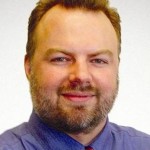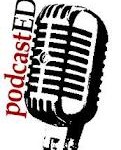
Note: This is part of a three-part series of podcasts on Nevada’s new education savings account program. See our conversation with Seth Rau of Nevada Succeeds here. In Part 3, we will talk with Howard Fuller.
Nevada’s first-of-its-kind education savings account program has highlighted a philosophical difference among some within the school choice movement, which has previously aired on this blog and elsewhere.
Should private school programs be open to all students, or should eligibility be limited to the disadvantaged — such those with lower incomes, or those with special needs?
In a recent piece published by the Thomas B. Fordham Institute, Howard Fuller, long a leading champion of the movement, said he did not want to join the parade celebrating Nevada’s program, which will be open to nearly all students, including the wealthy.
Other school choice backers favor universal programs, and responded that they prefer other mechanisms, like weighted funding, to meet the needs of disadvantaged students.
Some of the most detailed responses came from Matthew Ladner, a senior adviser to the Foundation for Excellence in Education.
In this podcast, we dig a little deeper into areas where he and Fuller have common ground, where they differ, and the potential of education savings accounts to create new possibilities for students and educators. 
Ladner says it can make sense to means-test some programs, like tax credit scholarships that have caps on the amount of funding available, to ensure their limited resources serve the students with the greatest needs.
Nevada’s program is different, he says, because there is no limit on the number of students it can serve. Any student can participate, as long as they’ve been enrolled in public schools for more than 100 days.
“If you don’t care about equity issues, you don’t belong in the school choice movement,” he says. The question is how best to achieve it. Helping Nevada’s new program serve all students will require sustained work.
“There’s going to have to be a considerable amount of philanthropic effort in order to support organizations that do have a heart for the poor, and are interested in creating new seats and opportunities for them,” he says.
In other articles, Ladner has likened the ESA program to a smartphone, and we talk about why that analogy makes sense. For one thing, it’s a platform that educators and entrepreneurs can use to develop new ideas — microschools, low-cost tutoring services, virtual courses — that look nothing like the schools we can picture today.
There’s a limited number of existing private schools in Nevada. For the new program to succeed, it’s likely going to have to spur the creation of new offerings we can’t picture yet.
“We’re in kind of a learning experience here,” Ladner says. “We’ll observe as Nevadans figure out how best to use their new freedom.”


